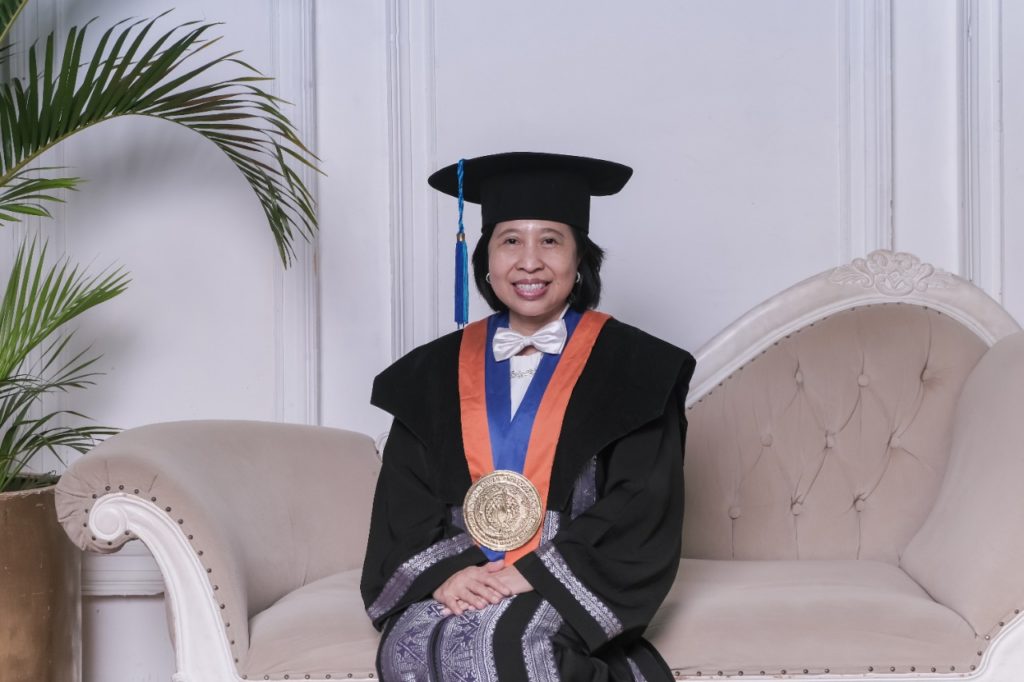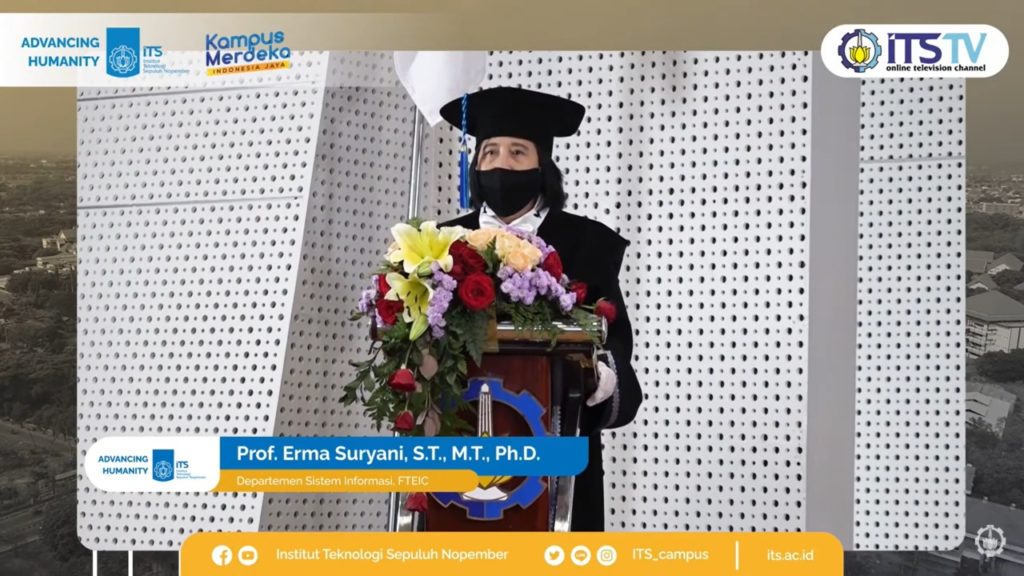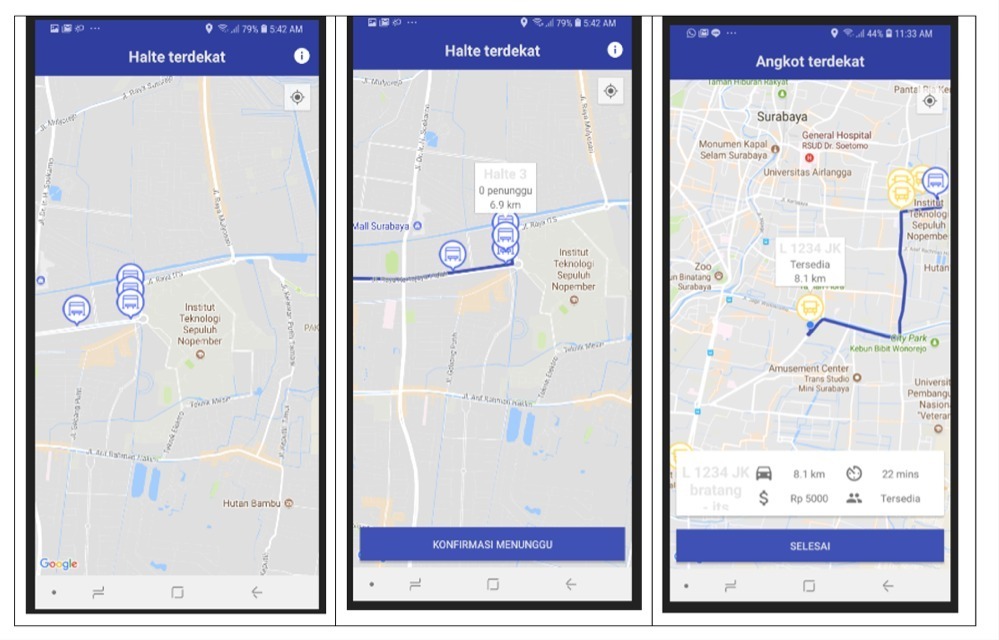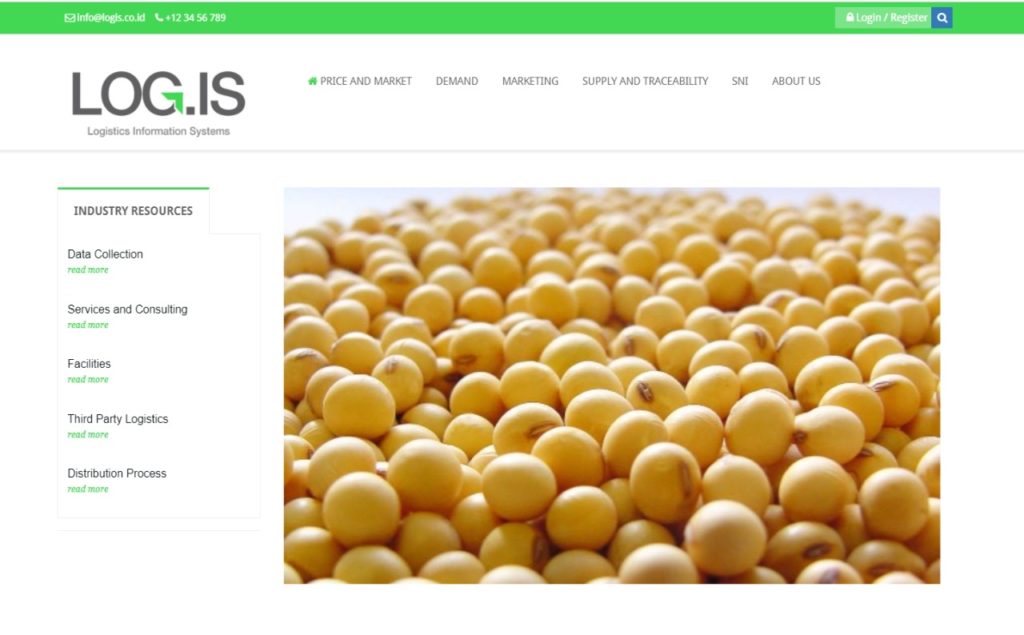ITS Professor Implements MDDSS in Two Sectors of Life

Prof. Erma Suryani ST MT Ph.D. from the ITS Information Systems Department who was confirmed as ITS Professor on March 31, 2021
ITS Campus, ITS News – Human life is never separated from mobility and meeting food needs. The number of problems that arise in the two sectors has prompted Prof. Erma Suryani ST MT Ph.D., one of the professors (gubes) of the Sepuluh Nopember Institute of Technology (ITS), to implement Model-Driven Decision Support Systems (MDDSS) as a strategy as well as a solution in decision making and policymaking.
As an introduction, Erma explained in advance about MDDSS in a scientific oration during his inauguration as ITS Professor on March 31, 2021. He explained, MDDSS is a model-based decision support system that focuses on access to manipulating simulation models whose outputs can be used as a basis for decision making. “So, the simulation model, in this case, plays a role in projecting future system conditions to improve system performance,” she said.
Furthermore, this woman born in Sumenep also explained that the MDDSS could be used in many sectors. However, in her research, the lecturer, who has been pursuing a career since 2005, has implemented MDDSS in two focuses at once, namely the transportation system and the food industry.

Prof. Erma Suryani ST MT Ph.D. when delivering her scientific oration in the online inauguration of ITS Professor
The transportation sector is Erma’s focus in implementing MDDSS because the construction of new roads does not match the increasing number of motorized vehicles. Based on research, this has had a severe negative impact. “Therefore, an integrated transportation planning is needed to mitigate congestion, increase mobility and safety in the transportation system,” she explained.
By implementing MDDSS in urban transportation planning, Erma explained that the projected traffic congestion could be reduced by around 61-70 percent. Likewise, mobility performance is projected to increase by about 7 percent, and road user safety is projected to increase to 94.47 percent in 2040.
This alumnus of Electrical Engineering ITS said that the national rice production, which has decreased, is the background why she participated in implementing MDDSS in the food industry sector. “Because MDDSS can also increase the value of the food supply chain, which includes increased productivity, increased production, and increased competitiveness of the rice supply chain,” she claimed.

The Intravtas application interface results from a collaboration between Prof. Erma Suryani ST MT Ph.D. with the Surabaya City Transportation Agency.
In implementing MDDSS in these two sectors, Erma also took advantage of information technology. In the transportation sector, Erma develops Intravtas and Advanced Traveler Management Systems (ATMs). Both are mobile-based applications that are useful for monitoring the availability of public transport and providing traffic navigation, and providing vehicle warning systems and information on several traveling facilities.
As for the food industry sector, Erma also developed four mobile webs, including Logistics Information Systems (LOG.IS), Intelligent Agricultural Cultivation (BUPERDAS), Disaster Risk Reduction in Agricultural Systems (DIRRAS), and Agricultural Marketing (AGRIMA). Each of the four mobile webs has different functions in supporting the improvement of the rice industry supply chain.

User interface display on LOG.IS, a mobile web that facilitates information on food logistics for several commodities as well as their online trading
Through the implementation of MDDSS, which is supported by this information technology, Erma believes that later it can become a policy formulation that can be applied to both the transportation sector and the food industry. This publication also led Erma to achieve her title as ITS Professor.
Even so, Erma thought that was not the end of her goal. “I want to be able to continue to develop myself to improve the tri dharma of higher education which includes teaching, research, and community service,” she determined. (far/ITS Public Relations)
Reporter: Tiara Hikmata Billah
Related News
-
ITS Wins 2024 Project Implementation Award for Commitment to Gender Implementation
ITS Campus, ITS News —Not only technology-oriented, Institut Teknologi Sepuluh Nopember (ITS) also show its commitment to support gender
April 14, 2021 17:04 -
ITS Professor Researched the Role of Human Integration in Sustainable Architecture
ITS Campus, ITS News –The developing era has an impact on many aspects of life, including in the field
April 14, 2021 17:04 -
ITS Sends Off Group for Joint Homecoming to 64 Destination Areas
ITS Campus, ITS News — Approaching Eid al-Fitr, the Sepuluh Nopember Institute of Technology (ITS) is once again facilitating academics who want
April 14, 2021 17:04 -
ITS Expert: IHSG Decline Has Significant Impact on Indonesian Economy
ITS Campus, ITS News — The decline in the Composite Stock Price Index (IHSG) by five percent on March 18,
April 14, 2021 17:04
